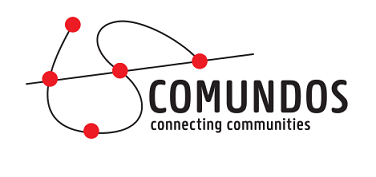The story of beekeeping at the Institute For Rural Entrepreneurship (IRE), Nkambe, Cameroon.
A honey bee plays two major and vital roles in the balance of our ecosystem.
 First in the multiplication and propagation of plants species by helping in a process called pollination which leads to fertilisation and formation of seeds which grow to new plants.
First in the multiplication and propagation of plants species by helping in a process called pollination which leads to fertilisation and formation of seeds which grow to new plants.
The bee does this as it moves from one plant to the other, gathering pollen for processing honey. Therefore it plays a great role in environmental conservation and protection.
Secondly, Honey has a high nutritional and medicinal value. Other products of bee-farming such as wax and propolist are of great economic importance.
Therefore given the economic and environmental value of beekeeping, it is right and fitting that we should teach the young people and farmers to engage in bee farming or Apiculture.
The Institute of Rural Entrepreneurship Nkambe is not left out in this endeavour.
Here is the story of our pedagogic apiary.
It all started on 16 February 2016 by the visit of Elsa Demoulin, the Project Manager of Miel Maya Honing(MMH) a Belgian NGO. She came and talked to us about the beekeeping project. This was followed by a series of seminars and training sessions in Yaounde and Nkambe. Two trainers of IFER are undergoing training on beekeeping ( Yovngeh Peter and Doh Leslie Afanyu)
 Mr Dinga Joseph, came into the scene as the project manager of MMH for the PROCEFFA Platform to pilot the project in Cameroon. Very importantly that Mr Nshom Wilfred, the technical coordinator of beekeeping for the Diocese of Kumbo, held a series of meetings with the local beekeepers of Nkambe and the training team of IRE Nkambe.
Mr Dinga Joseph, came into the scene as the project manager of MMH for the PROCEFFA Platform to pilot the project in Cameroon. Very importantly that Mr Nshom Wilfred, the technical coordinator of beekeeping for the Diocese of Kumbo, held a series of meetings with the local beekeepers of Nkambe and the training team of IRE Nkambe.
Concrete action started in October 2017 with the purchase of beekeeping equipment, preparation of the pedagogic apiary and construction of hives.
Hives were installed in November 2017 with the assistance of Mr. Nshom Wilfred and local bee farmers.
By January 2018 eight hives out of 12 were colonized and in March 2018 all the hives were colonised. In May 2018 we did the first harvest and extraction producing 5 litres of honey even though the harvest was done late as most of the hives had broods.
 Challenges
Challenges
We have faced a good number of challenges to which we have tried to seek out solutions.
- Wild fires. Our apiary is linked to a vast surrounding bush therefore we face a danger of wild fire. We did the fire-tracing and it helped a lot.
- Stray animals. We are in a vast grazing area for cows, goat, sheep, horses and human beings who search fuel wood or who come purposely to steal honey. We are constructing a fence in a bit to stop any trespassing.
- Pests. There are some crickets, ants and spiders that infest the hives in order to steal honey or kill bees. We are trying to fight against these pests by regularly visiting the hives and driving them away or using magic chalk.
- Fear of bee sting. As learners, we are afraid of bees, especially during harvesting, because their sting is very unpleasant. As we are getting into it the fear is fading away and the activity is getting more interesting. We have learnt to be gentle and friendly with bees.
Apiculture in IFER Nkambe is indeed a successful project.
Prospects; we look forward to the construction of honey processing unit and the integration of beekeeping in the training plan
Yovngeh Peter
Director IRE Nkambe
 |
 |
|
 |
 |
|
A gift for Comundos
Over the years, Comundos has helped remote communities around the world by teaching critical thinking, media literacy and the use of communication technology.
To do this effectively, we need your support for computers, translations, courses and social media management.
Thank you .
BE11 1030 2973 8248





